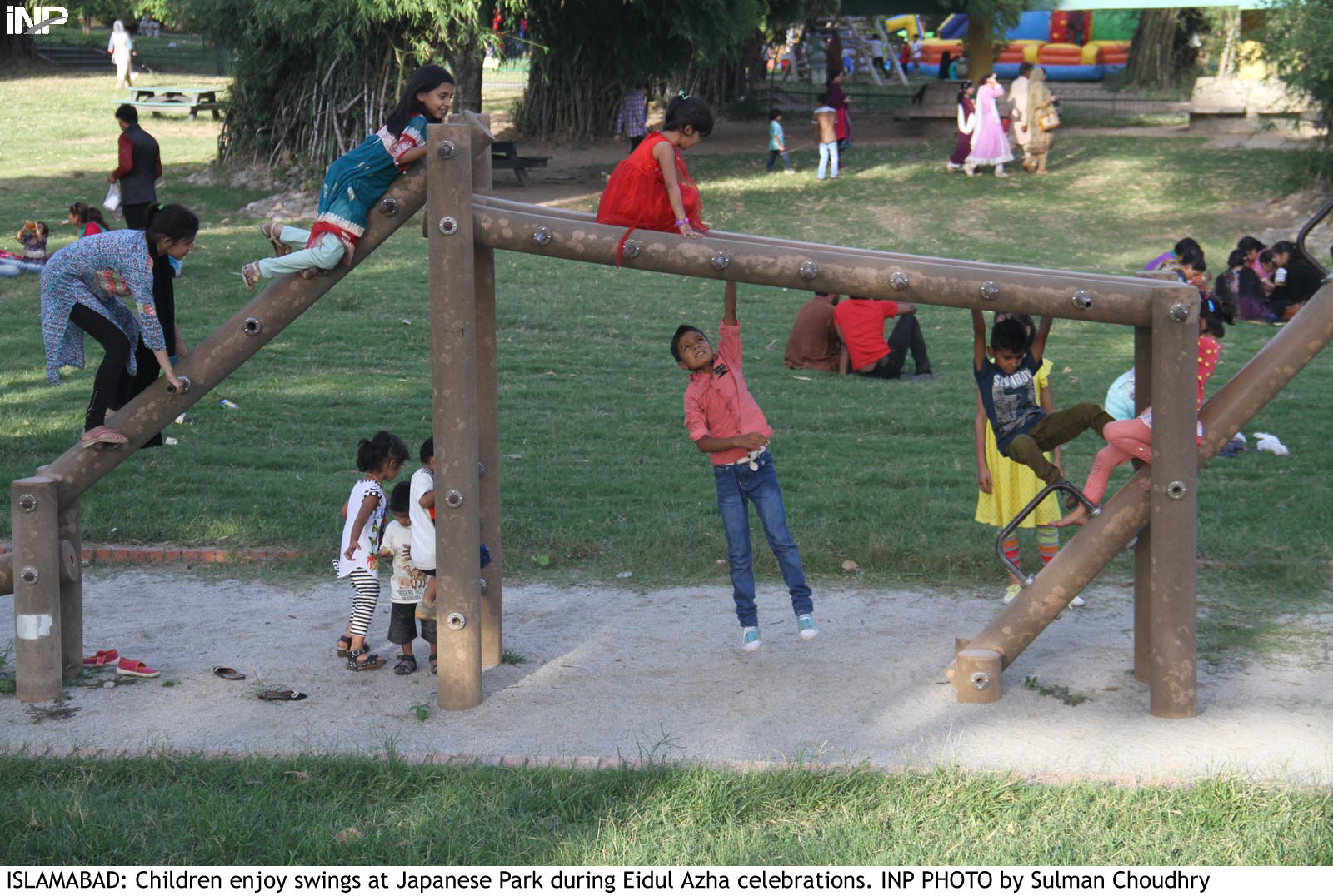
Pakistan's largest city lacks public spaces and this is affecting the mental health of citizens, especially those belong to the working class, highlighted architect and founder of Aesthetic Community Design Sumera M Bilgrami on Thursday.
She expressed these views during a workshop, titled 'Way Forward for Sustainable Urban Mobility in Karachi', organised by Shehri-Citizens for a Better Environment.
Outlining solutions for establishing inclusive and sustainable urban spaces, Bilgrami stressed the need for public parks and sports facilities in neighbourhoods.
This way, more and more people can benefit from such facilities, she explained. She also suggested reforming building by-laws, pointing out that open spaces around residential buildings, proper lighting and ventilation, proper drainage and sanitation system, green-belts, landscaping and off-street parking needed to be covered under the new laws.
She highlighted that the number of vehicles in the city was on the rise, occupying much space.
"[But] changes on a small scale can even be made by citizens creating public spaces in [their respective] neighbourhoods," said Bilgrami.
Dean of architecture and management sciences at the NED University of Engineering and Technology (NEDUET) Dr Noman Ahmed recalled that in the past, governments would easily adopt new methods of governance and consider the suggestions of academia and other professionals for policy making.
But presently, the government is far from doing it, he regretted. Dr Ahmed, who is also an urban planner, went on to say, "While organising or conducting workshops on matters related to governance, public policy or urban planning, we should keep in mind that the government [at present] is non-responsive [on these issues]."
In light of this observation, he suggested identifying stakeholders who could help make significant change in the said areas.
"There is hope from the private sector, besides citizens and society as a whole," he remarked.
"All we have to do is convince them [private partners] that a plan or solution is [viable for] business and they could benefit from it." Also calling for taking measures to bring about attitudinal change, Dr Ahmed urged for initiating new campaigns.
"Initially, people will be hesitant, but soon they will become a part of the change."
In this connection, he cited the example of NEDUET's teachers and students, who agreed to not allow any vehicles on campus on Friday. "We dubbed it 'Green Friday,'" he said, adding that as part of the campaign, even the vice-chancellor (VC) rode a bicycle on campus. "Initially, we were asked to [end the campaign], but our VC was firm and we were able to set a precedent."
Besides, Dr Ahmed pointed out the need to focus on providing relief to differently-abled persons, women, elderly and students in terms of mobility.
"With time, mobility has become difficult for them," he noted. Also speaking on the occasion, head of the architecture department at the Indus Valley School of Arts and Architecture Shumaila Palla explained the importance of public spaces in the context of the Covid-19 pandemic.
She said that in the initial days of the lockdown, the public experienced 'pandemic anxiety'. "People were clueless and everyone was asking 'Where should we go?' since parks were closed and the streets empty," recalled Palla.
However, she added, a positive outcome of the lockdown was that many took to cycling, which emerged as a new trend in some areas. "There was at least some change, though some said the activity was restricted to just the upper class."
Practices adopted during the lockdown can be continued in the future as well, according to Palla, who suggested marking circles as an effective way for social distancing in public places. "The pandemic is an opportunity and a way forward, as it has led to many a quick solution," she commented.

1731570357-0/elon-musk-(1)1731570357-0-405x300.webp)
-(1)1717678110-0/Kendrick-(1)-(1)1717678110-0-165x106.webp)















COMMENTS
Comments are moderated and generally will be posted if they are on-topic and not abusive.
For more information, please see our Comments FAQ